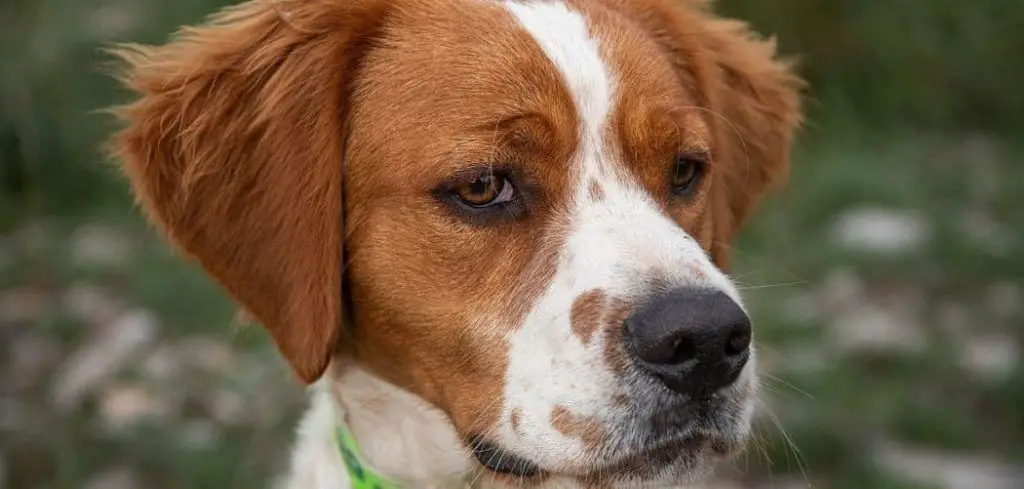Noticing your dog losing hair can be alarming, especially if it seems sudden or is accompanied by changes in behavior.
While shedding is normal, stress-related hair loss can point to deeper physical or emotional issues that need attention.
We outline the reasons why hair loss in dogs due to stress happens, what you can do at home, and when to seek veterinary help.
Table of Contents
Dog Hair Loss Due to Stress — Why It Happens
Dog hair loss due to stress happens because stress can trigger physical changes in your dog’s body that lead to noticeable hair loss. Anxiety, environmental changes, medical conditions, and poor diet can all play a role.
When a dog is stressed, hormone levels can shift, immune function may weaken, and grooming behaviors can change, resulting in patchy or excessive hair shedding. These changes can also exacerbate underlying skin conditions, making hair loss worse.

Common Causes of Hair Loss in Dogs Due to Stress
Anxiety and Behavioral Stress
Dogs experiencing separation anxiety, fear from loud noises, or major lifestyle changes often develop physical symptoms. Stress hormones like cortisol can disrupt normal hair growth cycles, causing thinning or bald patches.
You might notice your dog licking or chewing at specific spots, leading to localized hair loss. Over time, the skin in these areas can become irritated or even infected.
Read more: Dog Itching Due to Stress (Why it happens)
Allergic Reactions Exacerbated by Stress
Stress can make allergic skin conditions worse. Dogs with food or environmental allergies may react more strongly when stressed, with increased scratching or chewing.
The constant irritation can lead to inflamed skin, secondary infections, and significant hair loss in affected regions.
Hormonal Imbalances
Stress can disrupt the endocrine system, leading to conditions like hypothyroidism or Cushing’s disease. These disorders can slow hair regrowth or cause symmetrical hair thinning along the body.
Owners may also notice lethargy, weight changes, or altered appetite alongside hair loss, indicating that stress may be worsening an existing hormonal issue.
Nutritional Deficiencies
Dogs under chronic stress may eat less or metabolize nutrients differently, leading to deficiencies in essential fatty acids, proteins, and vitamins.
Poor nutrition affects coat quality, making hair brittle and prone to falling out. A dull, dry coat may accompany patchy hair loss.
Parasite Infestations Worsened by Stress
Stress can weaken a dog’s immune defenses, making it harder to fight off fleas, mites, or ticks. As parasites feed, they irritate the skin, prompting scratching, biting, and ultimately hair loss.
Without prompt treatment, infestations can spread, leading to more discomfort and secondary infections.
What to Do If Your Dog Is Experiencing Hair Loss Due to Stress
Start by identifying and reducing stress triggers in your dog’s environment. This might mean providing a quiet space, using calming pheromone diffusers, or maintaining consistent routines.
Offer a high-quality diet rich in omega-3 and omega-6 fatty acids to support skin and coat health. Gentle grooming with a soft brush can also stimulate healthy hair growth.
Engage your dog in regular exercise and mental enrichment to relieve anxiety. If excessive licking or chewing is contributing to hair loss, consider using protective clothing or an Elizabethan collar while addressing the root cause.
Always monitor your dog closely and be ready to involve your veterinarian if the condition does not improve.
When to Call or Visit Your Vet
If hair loss is severe, spreading rapidly, or accompanied by redness, swelling, or sores, veterinary attention is essential. Persistent licking, chewing, or scratching should also prompt a visit.
Seek immediate care if your dog shows other symptoms such as lethargy, weight loss, appetite changes, or signs of pain. These could indicate underlying medical issues worsened by stress.
Your vet can perform diagnostic tests to determine if the cause is purely stress-related or linked to a treatable condition.
Read more: Dog Diarrhea Due To Stress (Here’s why)
Key Takeaway
Stress-related hair loss in dogs is more than a cosmetic issue — it’s a sign that your pet’s well-being may be compromised. Identifying stressors, supporting coat health through diet and care, and seeking timely veterinary guidance can help your dog recover.
By addressing both the emotional and physical aspects of your dog’s health, you can restore not just their coat, but their comfort and confidence.
